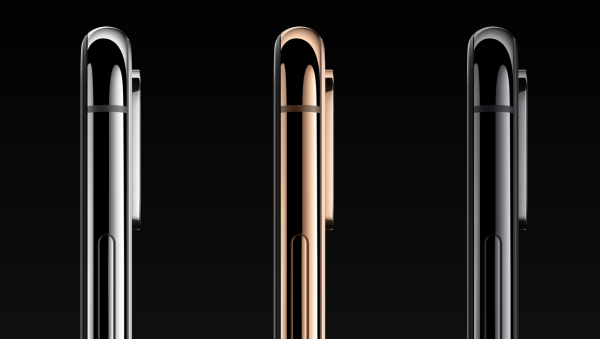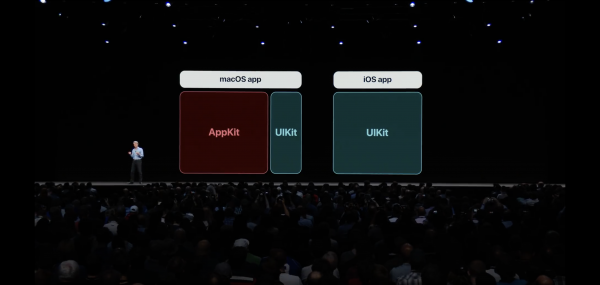Hugo Barra, Facebook's Former Vice President of Virtual Reality and Head of Oculus Division, discusses his thoughts and appreciations of Apple Vision Pro.
Oculus Founder on Apple Vision Pro: "Apple is doing everything right" →
Palmer Luckey, founder of Oculus, discusses his thoughts on Apple Vision Pro.
Side-Loading and Third-Party App Stores →
The biggest argument I've heard in support of side-loading and third-party app stores for iOS is:
I'm paying over $1,000 for my device. I should have the right to do whatever I want with it!
While I do agree with that sentiment, I firmly believe that would only lead to a shitty path for iOS. Marco Arment perfectly illustrates my my same sentiments:
I don’t expect side-loading or alternative app stores to become possible, and I’m relieved, because that is not a future I want for iOS.
When evaluating such ideas, I merely ask myself:
“What would Facebook do?”
Facebook owns four of the top ten apps in the world. If side-loading became possible, Facebook could remove Instagram, WhatsApp, the Facebook app, and Messenger from Apple’s App Store, requiring customers to install these extremely popular apps directly from Facebook via side-loading.
And everyone would.
And then:
Alternative app stores would be even worse. Rather than offering individual apps via side-loading, Facebook could offer just one:
The Facebook App Store.
Instagram, WhatsApp, the Facebook app, and Messenger could all be available exclusively there.
The majority of iOS users in the world would soon install it, and Facebook would start using leverage in other areas — apps’ social accounts, stats packages, app-install ads, ad-attribution requirements — to heavily incentivize (and likely strong-arm) a huge number of developers to offer their apps in the Facebook App Store, likely in addition to Apple’s.
Maybe I’d be required to add the Facebook SDK to my app in order to be in their store, which they would then use to surveil my users.
Maybe I’d need to buy app-install ads to show up in search there at all.
Maybe I’d need to pay Facebook to “promote” each app update to reach more than a tiny percentage of my existing customers.
This would be true for any conglomerate, including Amazon and Google. But I'm specifically concerned about Facebook.
We all know how much Zuckerberg hates Apple for implementing so many tracking-prevention measures that harms Facebook's business model. There's no doubt in my mind that Facebook would leverage its apps against Apple.
I support this.
At the very, very least, Apple needs to allow developers to offer alternative payment options:
- all in-app purchases must offer a Pay with iTunes option
- the Pay with iTunes button must be more prominent than any other payment option

iPhone Forever →
MG Siegler on The $1,500 iPhone, the next (last?) stop on the march towards 'Apple Prime':
It just makes sense. I do believe this year may be an aforementioned test of Apple’s customers willingness to pay insanely high prices for a phone. I can’t see the trend continuing with the $2,000 iPhone. But actually, I can! It will just be obfuscated by monthly payments. Just as it used to be in the days of carrier subsidies! But this time, such payments will be going directly to Apple.
Again, this is already happening for those of us on the iPhone Upgrade Program. And it means there is no $1,500 iPhone, it’s more like a $60/month iPhone. And you can easily talk yourself into it because thanks to being eligible for a yearly upgrade to the latest iPhone, you’re never paying full price for a device. Instead, if you do the math (which most won’t), you’re paying roughly half the cost for the top-of-the-line model over that year.
Of course, you’re also paying Apple in perpetuity! And this monthly bill is only going to go up as they bake in AppleCare (which they do), theft protection (new this year!), and eventually all sorts of other goodies: iCloud storage, Apple Music, Apple Television (the service, not the box), etc.
This is how Apple truly becomes a services business. And it’s happening in front of our very eyes.
This is exactly what makes Amazon Prime so successful — start with a killer service, charge a monthly fee, constantly add new value and perks to make it impossible for subscribers to leave, and slowly raise the price.
I can absolutely see Apple working towards this.
I’m not sure when Apple realized and started executing upon this gradual price increase strategy. My best guess is just after 2011, when the top-of-the-line price started inching upwards again. Perhaps (almost certainly?) not coincidentally, this was the same year they let carriers subsidize old models down to $0. Apple let the lowest iPhone hit the bottom in order to set the top-of-the-line on a trajectory towards the stratosphere.
And it worked, rather beautifully. Now, I believe, the $1,500 iPhone offers a glimpse into Apple’s next phase. The $99/month, forever, iPhone.
iPhone forever.

Project Marzipan →
As reported back in December by Mark Gurman in Bloomberg:
Starting as early as next year, software developers will be able to design a single application that works with a touchscreen or mouse and trackpad depending on whether it’s running on the iPhone and iPad operating system or on Mac hardware…
Developers currently must design two different apps -- one for iOS, the operating system of Apple’s mobile devices, and one for macOS, the system that runs Macs. That’s a lot more work. What’s more, Apple customers have long complained that some Mac apps get short shrift…With a single app for all machines, Mac, iPad and iPhone users will get new features and updates at the same time…
Apple is developing the strategy as part of the next major iOS and macOS updates…Codenamed “Marzipan,” the secret project is planned as a multiyear effort that will start rolling out as early as next year…
Simply put, Apple is taking key foundations of iOS and putting it in macOS in an effort to inject the abundance of iOS developer enthusiasm from mobile into desktop.
As I've talked before, this comes at a really interesting time for desktop computers:
- iOS apps are still a booming business
- Android apps continue to grow in revenue
- cross-platform desktop apps based on Electron are growing popular
- Progressive Web Apps are a rising technology that will bring the massive reach of native-like web apps to all devices
These trends all point to one big question — what is the future of desktop apps?
Services like Facebook, Twitter, Instagram, and Amazon will never need the full-blown robustness of a native Mac/Windows desktop app; they'll be able to get by just fine as Progressive Web Apps, especially since Chrome OS and Windows are pushing so hard for the technology.
But what happens to Facebook, Twitter, Instagram, and Amazon when they get much better user engagement when they port their iOS apps to Mac?
Desktop apps will always be more powerful than mobile apps. And mobile apps will always be more powerful than Web Apps. But maybe, if this Marzipan thing gains traction, the future of mobile & desktop ends up being three main platforms — Marzipan for iOS & Mac, Android for non-iPhones, and then Progressive Web App for literally everything else.
What is the Future of Mac Apps? →
The rumor of Apple converging iOS and macOS is starting to make a whole lot of sense.
Rumor: Apple to Converge iOS, macOS Apps →
For Microsoft, shifting to universal apps was a way to shed legacy baggage and encourage support for post-PC devices. For Google, bringing Android apps to Chrome let them tap into native functionality and performance.
For Apple, it lets the massive iOS platform help pull the Mac platform forward.
If true, this would be another classic case of Apple copying an idea where that others have failed to execute.
It's a brilliant idea but the success or failure of this type of move would come down to the nitty gritty details that will affect iOS/macOS developers.
Apple's ARKit: The World's Largest Augmented Reality Platform in the World, Overnight →
I see a common obstacle for Microsoft, Google and Facebook's entrances into AR. I expect they will all struggle to incentivize enough developers to build a vibrant ecosystem.
Google's Project Tango has been around since 2014, and it is almost universally considered a flop. Project Tango only works on specialized hardware that relatively few people own, and because of that, the software landscape is bleak.
Microsoft's HoloLens was announced in early 2015, and it's really quite impressive by all accounts. But it's not really a consumer product. The HoloLens starts at $3,000 and is marketed as a developer edition. At this point, they have too few users to truly attract developers in large numbers. Obviously, this could change dramatically if they announce a truly revolutionary consumer device.
Facebook's AR Studio is only a few months older than AR Kit, and Facebook has 2 billion users. But at this point, Facebook isn't offering a way for developers to monetize their AR Studio creations. This means it will be filled with AR "apps" that are essentially ads for companies that monetize in other ways.
In the fall, Apple will update their iPhone line and hundreds of millions of iOS devices being used today will be updated to iOS 11 and capable of running ARKit apps. This is serious incentive, and I expect to see a cascade of AR-enabled apps in the App Store at the end of the year.
This is exactly why Apple's stubborn approach to top-to-bottom proprietary/integrated technology pays off.
While everyone else gets bragging rights for beating Apple to market, Apple focuses on becoming first to mainstream adoption.
The Bad Product Fallacy →
When I talk to people about upcoming ideas that have serious potential, I'm often met with the same skepticism.
Andrew Chen explains why your personal use cases and opinion are a shitty predictor of a product’s future success:
- If it looks like a toy, what happens if it’s successful with its initial audience and then starts to add a lot more features?
- If it looks like a luxury, what happens if it becomes much cheaper? Or much better, at the same price?
- If it’s a marketplace that doesn’t sell anything you’d buy, what happens when it starts stocking products and services you find valuable?
- If none of your friends use a social product, what happens when they win a niche and ultimately all your friends are using it too?
I've always believed three things:
- Technology always gets better and cheaper over time.
- Consumers vote with their wallets.
- Don't ever underestimate the power of convenience.
Once a technology that provides convenience matures enough and gets cheap enough, that's what the world adopts it.